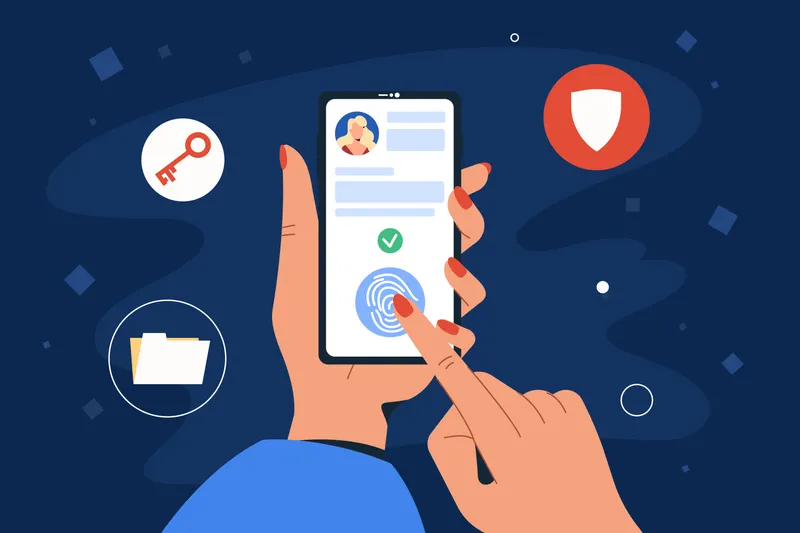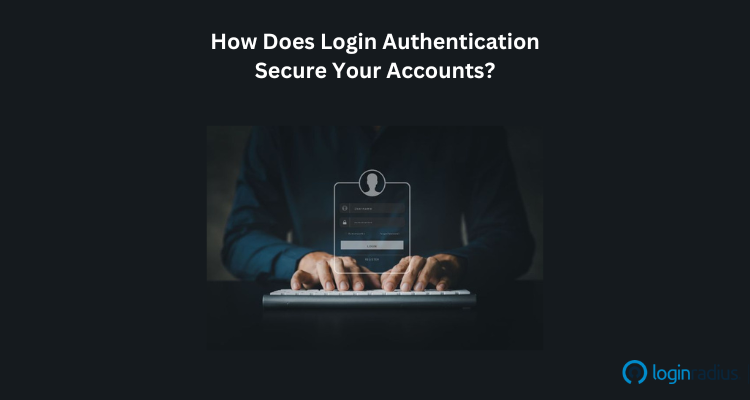Why do so many victims of cyber fraud remain silent, and what support do they need?
It's a common and unfortunate reality that many victims of cyber fraud remain silent.
This silence creates a significant challenge for law enforcement, perpetuates the stigma, and leaves victims isolated.
The reasons are primarily psychological and societal:
Why Victims Remain Silent:
Shame and Embarrassment: This is by far the biggest factor. Victims often feel incredibly foolish, stupid, or naïve for having "fallen for" a scam, especially when it involves significant financial loss or emotional manipulation (like in romance scams). They fear judgment from family, friends, and society, leading them to hide their experience. Phrases like "You should have known better" only exacerbate these feelings.
Self-Blame and Guilt: Many victims internalize the blame, believing it was their fault for being "too trusting" or "not smart enough" to spot the scam. This self-blame is often compounded in investment scams, where victims might feel they were "greedy" for wanting quick returns.
Fear of Judgment and Stigma: There's a societal stigma attached to being a fraud victim that isn't always present for victims of other crimes (like physical assault or robbery). People tend to associate fraud victims with gullibility, which is a harsh and unfair stereotype.
Emotional Distress and Trauma: The psychological impact of cyber fraud can be immense, leading to severe anxiety, depression, PTSD, isolation, and even suicidal thoughts. This emotional toll can make it incredibly difficult for victims to speak out or even process what happened.
Perceived Futility of Reporting:
Lack of Recovery: Many victims believe that reporting won't lead to the recovery of their lost money, especially with international scams and cryptocurrency.
Lack of Faith in Law Enforcement: Some may feel that law enforcement won't have the resources or expertise to investigate complex cyber fraud cases, or that their case is too small to matter.
Complicated Reporting Processes: The process of reporting can sometimes be perceived as complicated or overwhelming, especially when navigating multiple agencies (e.g., police, bank, platform).
Desire to Forget and Move On: The experience can be so painful and humiliating that victims simply want to put it behind them and avoid reliving the trauma by discussing it.
Fear of Further Victimization: Some victims worry that reporting will make them a target for more scams or expose them to public scrutiny.
Lack of Awareness of Support Systems: Victims may not know who to report to or what support services are available to them.
What Support Do They Need?
Victims of cyber fraud need a holistic approach that addresses not just the financial impact but also the profound emotional and psychological distress.
Empathy and Non-Judgmental Listening:
Crucial First Step: When a victim confides, the most important response is empathy and reassurance that it's not their fault. Avoid any language that implies blame or criticism.
Validation: Acknowledge their pain, shame, and anger. Help them understand that professional scammers are highly skilled manipulators who can deceive anyone.
Accessible and Streamlined Reporting Mechanisms:
Clear Pathways: Provide a central, easy-to-understand point of contact for reporting (e.g., Taiwan's 165 Anti-Fraud Hotline).
User-Friendly Process: Make the reporting process as simple and supportive as possible, minimizing bureaucratic hurdles.
Timely Response: Victims need to feel that their report is being taken seriously and acted upon promptly.
Psychological and Emotional Support:
Counseling and Therapy: Provide access to mental health professionals (psychologists, therapists) specializing in trauma and victim support. Fraud can lead to PTSD-like symptoms, anxiety, depression, and distrust.
Peer Support Groups: Connecting victims with others who have experienced similar fraud can be incredibly validating and therapeutic, reducing feelings of isolation and shame. Organizations like the FINRA Investor Education Foundation offer such groups.
Crisis Hotlines: Accessible hotlines for immediate emotional support.
Financial and Practical Assistance:
Guidance on Fund Recovery: Clear, realistic advice on whether and how lost funds might be recovered (e.g., chargebacks, contacting banks, asset forfeiture in criminal cases).
Identity Theft Resolution: Help with credit freezes, monitoring credit reports, and resolving any identity theft issues that arise from compromised data.
Legal Advice: Guidance on their legal rights and options, including potential civil lawsuits.
Practical Steps: Assistance with changing passwords, securing accounts, and removing malicious software.
Increased Public Awareness and Education:
De-stigmatization Campaigns: Public campaigns that highlight the sophistication of scams and emphasize that anyone can be a victim, thereby reducing shame and encouraging reporting.
Educational Resources: Easily digestible information about new scam tactics and prevention methods. This needs to be continuously updated and disseminated through various channels.
Focus on Emotional Impact: Educate the public on the psychological toll of fraud, not just the financial loss, to foster greater understanding and empathy.
By focusing on compassion, practical support, and systemic change, societies can help victims of cyber fraud break their silence, heal from their trauma, and contribute to a more effective fight against these pervasive crimes.
It's a common and unfortunate reality that many victims of cyber fraud remain silent.
This silence creates a significant challenge for law enforcement, perpetuates the stigma, and leaves victims isolated.
The reasons are primarily psychological and societal:
Why Victims Remain Silent:
Shame and Embarrassment: This is by far the biggest factor. Victims often feel incredibly foolish, stupid, or naïve for having "fallen for" a scam, especially when it involves significant financial loss or emotional manipulation (like in romance scams). They fear judgment from family, friends, and society, leading them to hide their experience. Phrases like "You should have known better" only exacerbate these feelings.
Self-Blame and Guilt: Many victims internalize the blame, believing it was their fault for being "too trusting" or "not smart enough" to spot the scam. This self-blame is often compounded in investment scams, where victims might feel they were "greedy" for wanting quick returns.
Fear of Judgment and Stigma: There's a societal stigma attached to being a fraud victim that isn't always present for victims of other crimes (like physical assault or robbery). People tend to associate fraud victims with gullibility, which is a harsh and unfair stereotype.
Emotional Distress and Trauma: The psychological impact of cyber fraud can be immense, leading to severe anxiety, depression, PTSD, isolation, and even suicidal thoughts. This emotional toll can make it incredibly difficult for victims to speak out or even process what happened.
Perceived Futility of Reporting:
Lack of Recovery: Many victims believe that reporting won't lead to the recovery of their lost money, especially with international scams and cryptocurrency.
Lack of Faith in Law Enforcement: Some may feel that law enforcement won't have the resources or expertise to investigate complex cyber fraud cases, or that their case is too small to matter.
Complicated Reporting Processes: The process of reporting can sometimes be perceived as complicated or overwhelming, especially when navigating multiple agencies (e.g., police, bank, platform).
Desire to Forget and Move On: The experience can be so painful and humiliating that victims simply want to put it behind them and avoid reliving the trauma by discussing it.
Fear of Further Victimization: Some victims worry that reporting will make them a target for more scams or expose them to public scrutiny.
Lack of Awareness of Support Systems: Victims may not know who to report to or what support services are available to them.
What Support Do They Need?
Victims of cyber fraud need a holistic approach that addresses not just the financial impact but also the profound emotional and psychological distress.
Empathy and Non-Judgmental Listening:
Crucial First Step: When a victim confides, the most important response is empathy and reassurance that it's not their fault. Avoid any language that implies blame or criticism.
Validation: Acknowledge their pain, shame, and anger. Help them understand that professional scammers are highly skilled manipulators who can deceive anyone.
Accessible and Streamlined Reporting Mechanisms:
Clear Pathways: Provide a central, easy-to-understand point of contact for reporting (e.g., Taiwan's 165 Anti-Fraud Hotline).
User-Friendly Process: Make the reporting process as simple and supportive as possible, minimizing bureaucratic hurdles.
Timely Response: Victims need to feel that their report is being taken seriously and acted upon promptly.
Psychological and Emotional Support:
Counseling and Therapy: Provide access to mental health professionals (psychologists, therapists) specializing in trauma and victim support. Fraud can lead to PTSD-like symptoms, anxiety, depression, and distrust.
Peer Support Groups: Connecting victims with others who have experienced similar fraud can be incredibly validating and therapeutic, reducing feelings of isolation and shame. Organizations like the FINRA Investor Education Foundation offer such groups.
Crisis Hotlines: Accessible hotlines for immediate emotional support.
Financial and Practical Assistance:
Guidance on Fund Recovery: Clear, realistic advice on whether and how lost funds might be recovered (e.g., chargebacks, contacting banks, asset forfeiture in criminal cases).
Identity Theft Resolution: Help with credit freezes, monitoring credit reports, and resolving any identity theft issues that arise from compromised data.
Legal Advice: Guidance on their legal rights and options, including potential civil lawsuits.
Practical Steps: Assistance with changing passwords, securing accounts, and removing malicious software.
Increased Public Awareness and Education:
De-stigmatization Campaigns: Public campaigns that highlight the sophistication of scams and emphasize that anyone can be a victim, thereby reducing shame and encouraging reporting.
Educational Resources: Easily digestible information about new scam tactics and prevention methods. This needs to be continuously updated and disseminated through various channels.
Focus on Emotional Impact: Educate the public on the psychological toll of fraud, not just the financial loss, to foster greater understanding and empathy.
By focusing on compassion, practical support, and systemic change, societies can help victims of cyber fraud break their silence, heal from their trauma, and contribute to a more effective fight against these pervasive crimes.
Why do so many victims of cyber fraud remain silent, and what support do they need?
It's a common and unfortunate reality that many victims of cyber fraud remain silent.
This silence creates a significant challenge for law enforcement, perpetuates the stigma, and leaves victims isolated.
The reasons are primarily psychological and societal:
Why Victims Remain Silent:
Shame and Embarrassment: This is by far the biggest factor. Victims often feel incredibly foolish, stupid, or naïve for having "fallen for" a scam, especially when it involves significant financial loss or emotional manipulation (like in romance scams). They fear judgment from family, friends, and society, leading them to hide their experience. Phrases like "You should have known better" only exacerbate these feelings.
Self-Blame and Guilt: Many victims internalize the blame, believing it was their fault for being "too trusting" or "not smart enough" to spot the scam. This self-blame is often compounded in investment scams, where victims might feel they were "greedy" for wanting quick returns.
Fear of Judgment and Stigma: There's a societal stigma attached to being a fraud victim that isn't always present for victims of other crimes (like physical assault or robbery). People tend to associate fraud victims with gullibility, which is a harsh and unfair stereotype.
Emotional Distress and Trauma: The psychological impact of cyber fraud can be immense, leading to severe anxiety, depression, PTSD, isolation, and even suicidal thoughts. This emotional toll can make it incredibly difficult for victims to speak out or even process what happened.
Perceived Futility of Reporting:
Lack of Recovery: Many victims believe that reporting won't lead to the recovery of their lost money, especially with international scams and cryptocurrency.
Lack of Faith in Law Enforcement: Some may feel that law enforcement won't have the resources or expertise to investigate complex cyber fraud cases, or that their case is too small to matter.
Complicated Reporting Processes: The process of reporting can sometimes be perceived as complicated or overwhelming, especially when navigating multiple agencies (e.g., police, bank, platform).
Desire to Forget and Move On: The experience can be so painful and humiliating that victims simply want to put it behind them and avoid reliving the trauma by discussing it.
Fear of Further Victimization: Some victims worry that reporting will make them a target for more scams or expose them to public scrutiny.
Lack of Awareness of Support Systems: Victims may not know who to report to or what support services are available to them.
What Support Do They Need?
Victims of cyber fraud need a holistic approach that addresses not just the financial impact but also the profound emotional and psychological distress.
Empathy and Non-Judgmental Listening:
Crucial First Step: When a victim confides, the most important response is empathy and reassurance that it's not their fault. Avoid any language that implies blame or criticism.
Validation: Acknowledge their pain, shame, and anger. Help them understand that professional scammers are highly skilled manipulators who can deceive anyone.
Accessible and Streamlined Reporting Mechanisms:
Clear Pathways: Provide a central, easy-to-understand point of contact for reporting (e.g., Taiwan's 165 Anti-Fraud Hotline).
User-Friendly Process: Make the reporting process as simple and supportive as possible, minimizing bureaucratic hurdles.
Timely Response: Victims need to feel that their report is being taken seriously and acted upon promptly.
Psychological and Emotional Support:
Counseling and Therapy: Provide access to mental health professionals (psychologists, therapists) specializing in trauma and victim support. Fraud can lead to PTSD-like symptoms, anxiety, depression, and distrust.
Peer Support Groups: Connecting victims with others who have experienced similar fraud can be incredibly validating and therapeutic, reducing feelings of isolation and shame. Organizations like the FINRA Investor Education Foundation offer such groups.
Crisis Hotlines: Accessible hotlines for immediate emotional support.
Financial and Practical Assistance:
Guidance on Fund Recovery: Clear, realistic advice on whether and how lost funds might be recovered (e.g., chargebacks, contacting banks, asset forfeiture in criminal cases).
Identity Theft Resolution: Help with credit freezes, monitoring credit reports, and resolving any identity theft issues that arise from compromised data.
Legal Advice: Guidance on their legal rights and options, including potential civil lawsuits.
Practical Steps: Assistance with changing passwords, securing accounts, and removing malicious software.
Increased Public Awareness and Education:
De-stigmatization Campaigns: Public campaigns that highlight the sophistication of scams and emphasize that anyone can be a victim, thereby reducing shame and encouraging reporting.
Educational Resources: Easily digestible information about new scam tactics and prevention methods. This needs to be continuously updated and disseminated through various channels.
Focus on Emotional Impact: Educate the public on the psychological toll of fraud, not just the financial loss, to foster greater understanding and empathy.
By focusing on compassion, practical support, and systemic change, societies can help victims of cyber fraud break their silence, heal from their trauma, and contribute to a more effective fight against these pervasive crimes.
0 Commentarios
0 Acciones
4K Views
0 Vista previa











